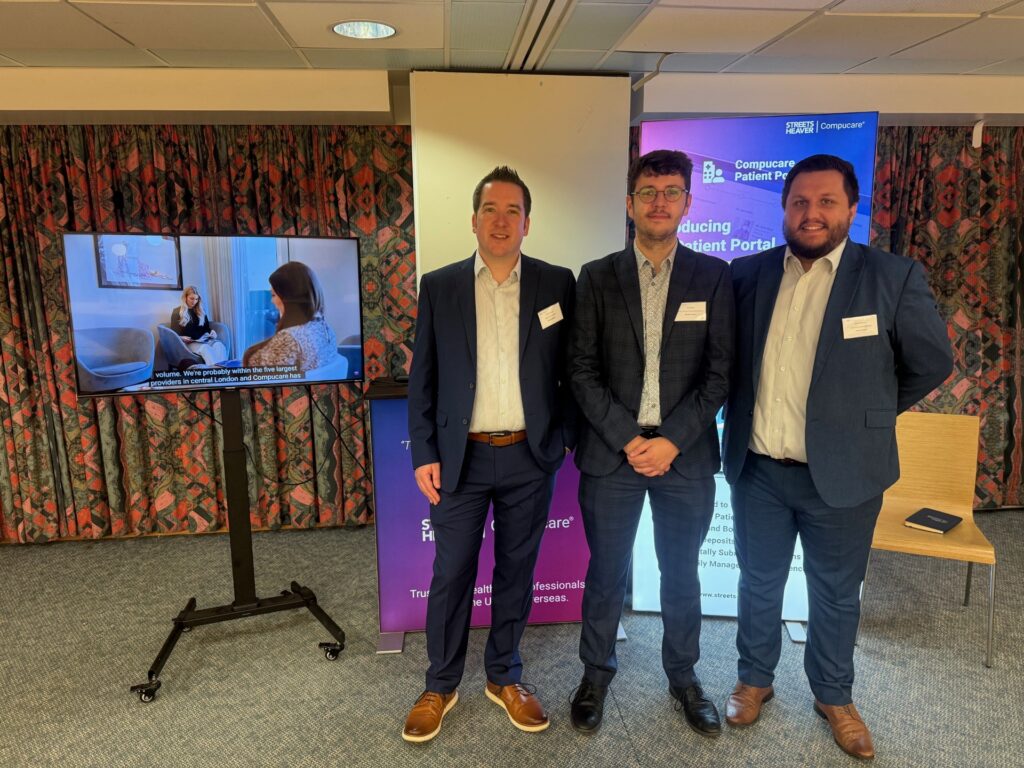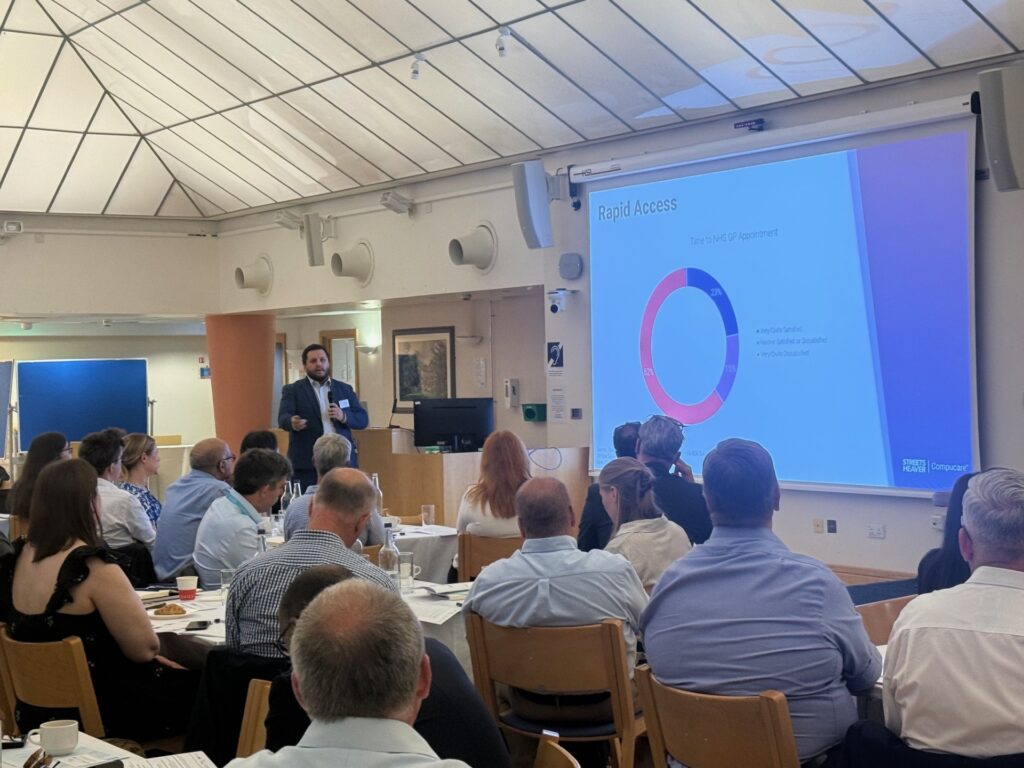SBK NHS Private Patients National Networking Forum 2025
Streets Heaver attended the SBK NHS Private Patients National Networking Forum 2025, as Executive Sponsors and guest speakers on the 4th July.
The SBK NHS Private Patients National Networking Forum, hosted at the Royal Free Hospital in London, brought together healthcare professionals from across the country to explore the evolving role of Private Patient Units (PPUs) in supporting NHS growth. The event served as a platform for sharing insights, best practices, and forward-thinking strategies to enhance private healthcare delivery within the NHS framework.
Enhancing Efficiency in PPU Workflows
Meeting the Growing Demand for Private Healthcare
While NHS care quality remains strong, patient frustration is rising, driven largely by long waiting times and limited appointment flexibility. Younger adults (18–24) are increasingly turning to private healthcare, supported by employer-backed PMI plans or by self-funding. This shift highlights the need for rapid access, specialist choice, and digital convenience.
To support this, our Patient Portal enables direct online bookings into clinician availability in Compucare. Although we are not the master system in most PPUs, we integrate with Trust PAS systems and are actively exploring interoperability with Trust systems to feed patient bookings via HL7 interfacing back into the Trust PAS system. Early investigations from one PPU are promising.
We’ve also expanded the ways in which patients can make bookings, though integrations with BUPA Finder and AXA’s booking tools, while offering fallback options like patient-submitted forms routed to dedicated PPU teams for follow-up.
Streamlining Patient Journeys and Reducing Admin Burden
Our tools are designed to simplify the patient journey and reduce manual workload for staff. Key features include:
- Automated communications: Shortfall notifications, registration forms, and satisfaction surveys.
- Flexible booking options: Patients can book directly or submit requests via forms.
- Pre-appointment support: Patients can complete forms online or via QR codes on arrival, reducing waiting room time and paperwork.
- Post-appointment feedback: Surveys help gauge satisfaction and identify areas for improvement.
These enhancements not only improve patient experience but also support overstretched PPU teams by automating routine tasks and streamlining workflows.
Enhancing Data Accuracy and Future-Proofing Systems
We’re committed to improving data accuracy and system intelligence. Within Compucare, insurer-specific validation (e.g., BUPA’s 2x letters followed by 10x digit number format) helps prevent errors at the point of entry. Looking ahead, we’re working toward real-time validation of PMI membership numbers and authorisation codes via Healthcode APIs, making the EDI claims process more seamless.
As NHS Trusts face ongoing recruitment and resourcing challenges, our focus remains on building software that automates the mundane, supports users intelligently, and helps PPUs operate more efficiently in a rapidly evolving healthcare landscape.
What We Learnt
Emphasising Transparency Through BNF Pricing
NHS England stressed the need for clear pricing when NHS-prescribed services are delivered privately. Using BNF pricing consistently (plus a margin) was recommended to ensure compliance and build patient trust. Concerns were raised about private patients being charged below cost or benefiting from NHS bulk discounts, which could lead to NHS subsidisation of private care.
As another example, when conducting diagnostic tests such as a full blood count, the true cost should include not only the lab processing fee, staff time and operational overheads, but also a suitable margin. Selling such services at cost would be unsustainable for any provider. A suitable markup is essential to ensure financial viability and reinvestment into services.
To avoid this, providers must understand true costs, like lab tests or prosthetics, and apply appropriate markups. Selling at or below cost is unsustainable and undermines reinvestment into NHS services.
Compucare supports this by helping providers track catalogue prices, apply fair markups, recording both its selling price and its cost price and its overheads within the contract rules. You can mark-up based on any of those things as to what your actual selling price is going to be on the invoice and then you report, which allows you to maintain pricing transparency, ensuring private care remains ethical and financially sound.
Data-Driven Negotiation: Lessons from Barts Health

The forum highlighted the strategic use of data in managing relationships with private medical insurers (PMIs). Barts Health NHS Trust was
recognised for its innovative dashboard, which tracks volumes of activity by PMI. This data-driven model enables more informed negotiations and helps maintain a balanced distribution of power between providers and insurers.
Addressing the Affordability Gap
Despite the benefits of private healthcare, affordability remains the primary barrier for many patients. The forum underscored the need for PPUs to address this challenge through innovative service models, flexible pricing, and patient-centric care pathways. By doing so, PPUs can expand access and support a more inclusive approach to private healthcare. By having a better handle on your costs then you can analyse your historic data and sell for a more accurate package price.
A Shared Commitment to Innovation and Sustainability
The event concluded with a strong sense of collaboration and shared purpose. Attendees reaffirmed their commitment to driving innovation, improving patient outcomes, and ensuring the long-term sustainability of NHS services through the strategic development of private patient offerings.

